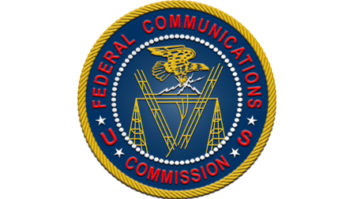EEO: round three
Feb 1, 2002 12:00 PM, By Harry Martin
Having failed twice to convince a federal appeals court that the FCC’s equal employment opportunity (EEO) rules are constitutional, the Commission is again wading into the rip tide of EEO. It has proposed new EEO rules for broadcasters.
Under the proposed rules, broadcasters and cable entities would be subject to a three-pronged outreach requirement. They would have to:
- recruit for every full-time vacancy in a manner designed to achieve broad outreach;
- provide job vacancy announcements to recruitment organizations that request them; and
- complete two (for broadcast employment units with five-to-ten full-time employees) or four (for employment units with more than ten full-time employees) longer-term recruitment initiatives within a two-year period. Such initiatives could include participation in at least four job fairs by station personnel with hiring responsibility, hosting at least one job fair, participation in certain scholarship or intern programs and sponsorship of at least two events in the community designed to inform the public as to employment opportunities in broadcasting.
In addition, entities subject to the proposed rules would have to collect and maintain listings of:
- all full-time jobs filled, identified by job title;
- the recruitment sources (including address, contact person and telephone number) used to fill each vacancy, including any organization which requested;
- dated copies of all �advertisements, letters, e-mails, faxes, etc.� used to fill each vacancy;
- documentation necessary to demonstrate performance of supplemental outreach initiatives;
- the total number of interviewees for each vacancy; and
- the date each job was filled.
The Commission is soliciting comments on whether additional data � for example, the recruitment sources of interviewees and/or hires � should be retained.
In addition, entities subject to the proposed rules would have to place in their stations’ public file (and on their website, if they have one) an annual report listing all of the following:
- all full-time jobs filled during the previous year;
- recruitment sources used to fill those vacancies;
- description of any supplemental initiatives implemented during the previous year.
Further, annual employment reports would be required to be filed with the Commission listing the ethnicity and gender of the reporting entity’s workforce.
Twice each license term � at renewal time and midway through the license term � reporting entities would be required to submit to the Commission their EEO public inspection file for Commission review.
With respect to the annual employment report, the Commission insists that the requirement is not an element of the Commission’s EEO rules, but is instead part of a separate and unrelated data-collection process intended for analyzing industry trends and reporting to Congress. However, presumably because the annual employment report is the only element in the proposed scheme that requires specific information concerning race, ethnicity and gender, the Commission seems to recognize that the annual reporting requirement might raise constitutional questions of the sort which led to the two earlier determinations that the EEO rules were unconstitutional. In light of that, the Commission is seeking comment on whether the annual report form can or should be filed anonymously.
Note that all of the proposals described above are just that � proposals. They have not yet been adopted and, at least for the time being, there are no EEO recording, keeping or reporting requirements (although, of course, all licensees are subject to the broad statutory and regulatory prohibition against improper employment discrimination).
The Commission’s proposals represent the latest in an extended struggle, so far unsuccessful, by the Commission to craft EEO rules that will withstand constitutional scrutiny. Everyone probably agees that employment discrimination on the basis of race, ethnicity or gender is presumptively wrong. But the need for any EEO rules in the broadcast and cable industries is not at all clear, since the Commission has not yet compiled any evidentiary record that even suggests, much less proves conclusively, that employment discrimination is rampant, or even a significant problem, in those industries.
Martin is an attorney with Fletcher, Heald and Hildreth, PLC.,Arlington, VA. E-mail
.
Dateline
No biennial ownership reports are due in 2002. Quarterly problems and programs lists for the first quarter of 2002 must be placed in stations’ public files by April 10.






